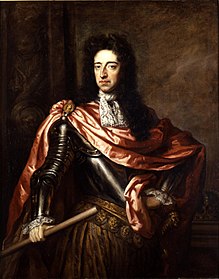I'll now take a stab at naming the greatest people of the 18th century.
William of Orange (1650-1702): Dutch Stadtholder and English King who played a crucial role in bringing together the Grand Alliance that checked absolutist French king Louis XIV's ambitions of continental domination, in The War of the League of Augsburg and the War of the Spanish Succession.
Peter the Great (1672-1725): The most progressive Tsar of Russia's Romanov Dynasty, he introduced many facets of western culture, increased the Russian Empire's territory and built the Baltic port of St. Petersburg from scratch.
Robert Walpole (1676-1745): British Whig politician who over almost two decades made the office of Prime Minister the centre of power in the United Kingdom.
Johann Sebastian Bach (1685-1760): Outstanding German composer of the baroque era. His music, often dismissed as old-fashioned in his lifetime, is still widely listened to today.
Voltaire (1694-78) French man of letters who emerged as one of the leading thinkers of the Enlightenment.
Benjamin Franklin (1706-90) Philadelphia printer who was a leader in the movement for American independence as well as a scientist, inventor and man of letters. He was one of the Enlightenment's central figures.
Karl Linnaeus (1707-78) Swedish biologist and pioneer taxonomist, who created the modern classification system for living things, an advance that made the Theory of Evolution possible.
William Pitt Sr. (1708-78): English politician whose global strategy in the Seven Years War led to crucial victories in the annus mirabilis of 1759 and made Britain a world power.
Qianlong (1711-99): Chinese Emperor who took the empire to its territorial peak, conquering a swath of central Asia. In his later years, however, his attraction to the corrupt official Heshen started the Qing Dynasty's decline.
Frederick the Great (1712-86): Prussian King who obtained superpower status for his kingdom through narrow victories in the War of the Austrian Succession and the Seven Years War.
Adam Smith (1723-90): Scottish thinker whose The Wealth of Nations became a founding text of capitalist economics.
Catherine the Great (1729-96): German-born Empress of Russia, who extended her realm's borders westward and southward, becoming one of the European powers.
George Washington (1732-99): Virginia planter who led the military struggle for American independence, promoted the 1787 constitution creating a federal government, and became the nation's first president.
James Watt (1736-1819): Scottish engineer who developed the first practical steam engine, helping to spur the Industrial Revolution.
Thomas Paine (1737-1809): English thinker who took the lead in calling for American independence, then helped draft the Declaration of the Rights of Man for the French Revolution. His publications include Common Sense, Rights of Man and the Deist tract The Age of Reason.
Toussaint Louverture (1743-1803): Haitian mulatto who led the slave colony in a long war for independence that signalled the beginning of the end for the New World's colonial slave economy.
Francisco Goya (1746-1828): Spanish painter whose style evolved into a dark, psychologically profound vision.
Johann Wolfgang von Goethe (1749-1832): A dominant figure in German literature and leader of the romantic cultural movement.
Wolfgang Amadeus Mozart (1756-91): Outstanding Austrian composer in the classical era. For his short life, he was unusually prolific in many musical fields, including symphony and opera.
William Blake (1757-1827): English poet and engraver, as well as radical religious and political thinker, at the forefront of the Romantic movement.
Horatio Nelson (1758-1805): English admiral whose sheer determination and advanced tactics in the Napoleonic Wars guaranteed the British Empire's naval supremacy.
Mary Wollstonecraft (1759-97): English author of A Vindication of the Rights of Women, a treatise that started the continuing movement for women's rights.






















No comments:
Post a Comment